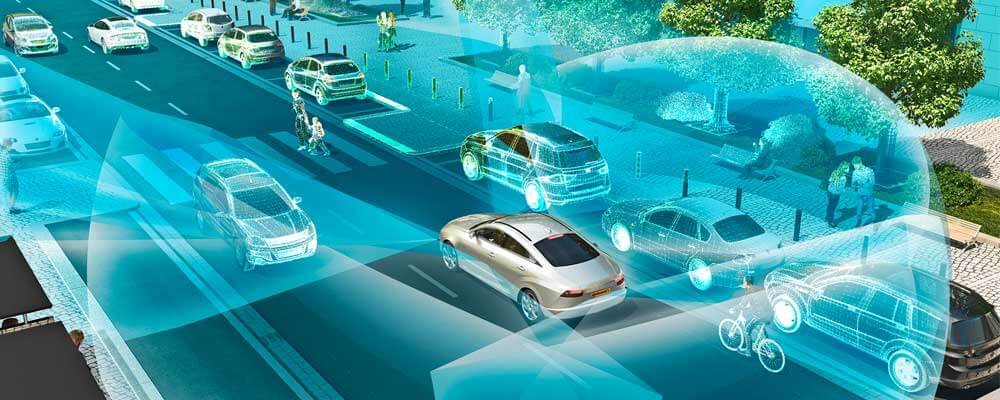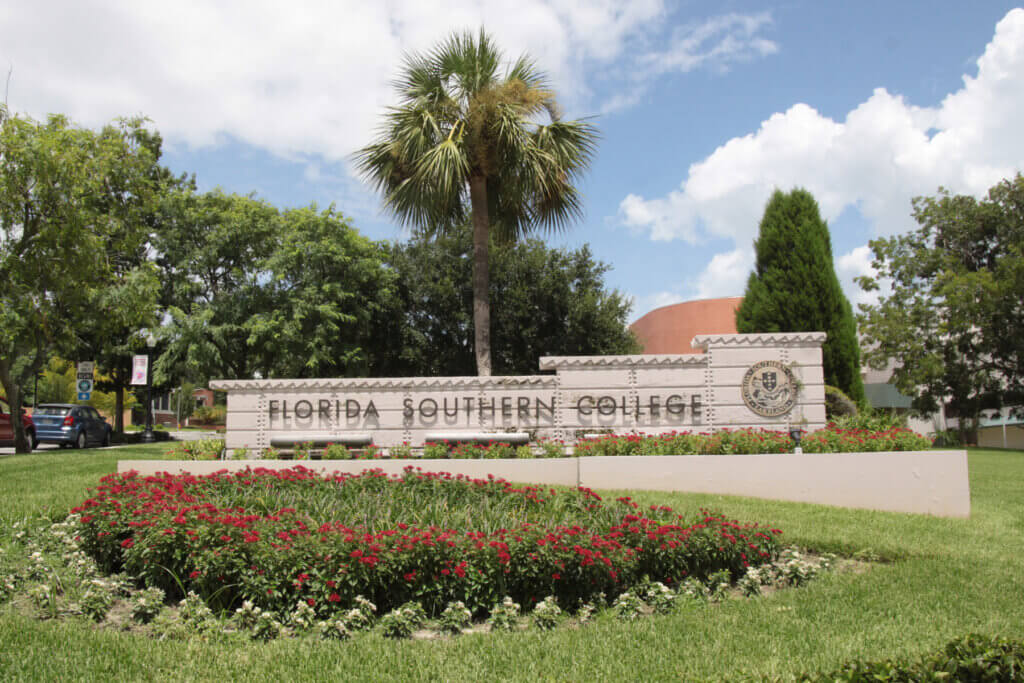Autonomous Technology Will Impact More Than Just Cars
The new Advanced Mobility Institute at Florida Polytechnic University will be a game-changer in the autonomous vehicle (AV) field, and in doing so is expected to diversify and boost the economy of Polk County and Central Florida.
In its infancy, the new Advanced Mobility Institute (AMI) is “a research institute focused on solving the problems of test and verification of autonomous technologies,” said Dr. Rahul Razdan, senior director for special projects at Florida Polytechnic.
“This is a vexing problem which is one of the key hurdles to be solved before many of these technologies are viable. As a research institute, AMI’s core staff are researchers, so there is a natural synergy with a polytechnic university” that focuses on STEM — science, technology, engineering and math, he said. Razdan recently spoke to the Florida Chamber about the institute
Partnerships are also critical, and the university and AMI have many in place already. For instance, Florida Poly has worked with the Massachusetts Institute of Technology to develop a course in autonomous systems and self-driving vehicles. It is also a partner with Autonomous Florida a program of the Florida Chamber of Commerce. The most significant partnership to date is with SunTrax, a new 400-acre research and testing facility under construction along the Polk Parkway near Auburndale, Florida — just down the road from the university — to test the latest technology.
Because of its research bent, Florida’s 12th university has students and researchers available to partner with the AV industry, said Razdan, who has more than 25 years experience in startups, academia, and Fortune 500 companies. With a doctorate from Harvard University, Razdan has worked in Autonomous technology, semiconductor design and STEM education in academia, while also being part of 24 patents.
There are several ways Central Florida will benefit from the research and the partnerships, those involved say.
“Florida, especially Central Florida and Polk County, are big consumers of AV technology,” said Maj. Gen. H.D. “Jake” Polumbo Jr., a member of the AMI staff and a founding partner in Two Blue Aces Consulting. “Thus, as consumers we will benefit from these capabilities and it will inevitably lead to higher-paying jobs and more tax revenue in the local municipalities and widely in the county.”
He likens the possibilities for Central Florida to Silicon Valley, Boston and Pittsburgh, where companies developing technology for artificial intelligence, sensors, advanced data links and communication networks partnered with technical universities like MIT, Stanford and Carnegie Mellon University.
“The opportunity for Florida is to develop and build capability in the test and verification business since that will undoubtedly be a huge part of the solution,” Polumbo said. “In this context, Florida has advantages around weather and legal framework for testing.”
The Florida Department of Transportation and Florida Turnpike Enterprise are developing SunTrax, where the 2.25-mile oval testing facility is expected to open in April 2019 to fulfill the need Polumbo talks about.
“All of this is targeted for the traditional autonomous vehicle marketplace, and if done correctly will position Central Florida and Polk County as a focal point for the AV market for decades to come,” said Polumbo, a career officer and fighter pilot in the Air Force before joining the private sector. He graduated from the Air Force Academy and then earned a master’s degree in aviation sciences from Embry Riddle Aeronautical University in Daytona Beach.
Sean Malott, president and chief executive officer of the Central Florida Development Council, said his organization has made supporting the AMI and affiliated research a top economic development priority.
“Polk County and Central Florida will be the epicenter for developing and testing autonomous and unmanned systems and technology. The economic impact will be tremendous for the region and the state,” Malott said.
Paul Satchfield, program management administrator for Florida’s Turnpike and SunTrax’s program manager, said once the oval is complete, companies will begin to rent the facility to use it for toll and AV testing.
Then, construction will begin on the 200-acre infield. Design work on that phase is underway and should be completed by June 2019, Satchfield said. Once a contract is awarded, they expect to break ground in July.
SunTrax and Florida Polytechnic signed a memorandum of understanding a few years ago and are working together to fill in details about their partnership.
“We’re still trying to put meat on those bones,” Satchfield said. This is how he envisions it: “Once we get the facility open, they will provide us with technical assistance at the facility. They will do research through other sources, then use SunTrax for their testing needs, like getting a car on the facility to test a sensor or radar.”
The economic impact can go further than the companies already here, and beyond just cars and trucks.
“Florida is home to several large mini-markets which will consume this core technology,” Razdan said. “These are marine, public transportation, logistics, agriculture, aviation and planned communities. All of these industries are likely to consume these technologies before the passenger car marketplace fully embraces AVs, so Florida’s near-term opportunities are to coordinate and harness this strength for the purposes of economic development.”
“If it works, advanced technology supply chains would migrate to Florida, engineering graduates from Florida’s universities would stay in the state and these industries would become highly differentiated in their core marketplaces,” he said. Currently, many graduates leave the state to get high-paying jobs elsewhere.
“If the state and community supports AMI (through partnerships and funding), the institute can become a great enabling factor to this transformation,” he said.
Traditionally, high-tech firms have developed near universities to take advantage of their students, graduates and research.
“We hope to see this activity with Florida Poly and its institutes — and specifically with AMI,” Razdan said. “This is why establishing a research park near the Poly campus is a strategic priority for President Randy Avent.”
Razdan shared an early AMI success story, saying a software company — MSC Software — wanted to engage with AMI’s leaders. “After initial meetings, they decided to hold their annual sales kickoff in Lakeland — with specific requests to hear a ‘keynote’ from the director and then get a tour of Poly’s campus and the Suntrax test track.”
Building a world-class testing facility should attract other companies like MSC Software, Satchfield said. “My hope and my vision is we will start to attract users who will see the potential of the facility, then they will set up shop in Central Florida.” The economic engine “starts to turn” when start-up companies begin opening here, he said. “Every time a company comes with 20 people, then another with 20 people, now you need another restaurant, a hotel. The potential is for huge impact in the next 10 to 20 years.”
By 2025, Satchfield said some research shows, the Autonomous Vehicle world will be a $345 billion investment. “With those type numbers, it doesn’t take a lot for it to come to Central Florida and have an impact on our local economy,” he said. “There’s going to be a great deal of money spent in the next 10 to 20 years between testing, manufacturing. It’s here to stay.”



